| Origem | Literatura Estrangeira |
|---|---|
| Quantidade de Páginas | 144 |
| Acabamento | Capa Comum |
| Autores | Mark Poynter |
| Idioma | Inglês |
| Edição | 0 |
| Selo | Arena Books |
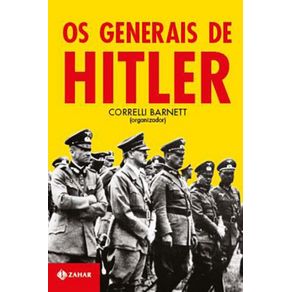 Os generais de Hitler
Os generais de Hitler
Companhia das Letras
R$ 149,90 ou até 2x sem juros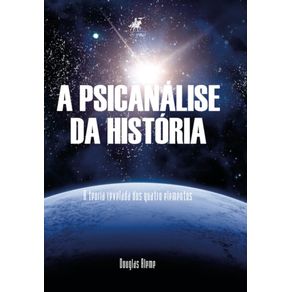 A psicanálise da história: A teoria revelada dos quatro elementos
A psicanálise da história: A teoria revelada dos quatro elementos
Editora Viseu
R$ 69,90 à vista Os 100 casos mais inexplicáveis da história
Os 100 casos mais inexplicáveis da história
Editora Viseu
R$ 48,90 à vista Em busca da riqueza
Em busca da riqueza
Editora Viseu
R$ 47,90 à vista Scrap Cities
Scrap Cities
Cathy Perlmutter
R$ 154,33 ou até 3x sem juros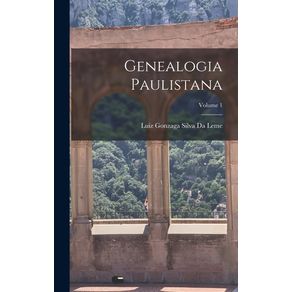 Genealogia Paulistana; Volume 1
Genealogia Paulistana; Volume 1
Legare Street Press
R$ 289,03 ou até 3x sem juros Charles the Great
Charles the Great
Legare Street Press
R$ 246,29 ou até 3x sem juros Radiation Therapy for Sarcomas and Skin Cancers
Radiation Therapy for Sarcomas and Skin Cancers
Springer Nature B.V.
R$ 338,74 ou até 3x sem juros La Jeunesse DHölderlin Jusquau Roman DHypérion
La Jeunesse DHölderlin Jusquau Roman DHypérion
Legare Street Press
R$ 168,93 ou até 3x sem juros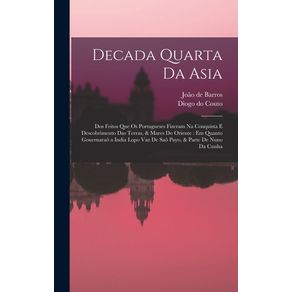 Decada quarta da Asia
Decada quarta da Asia
Legare Street Press
R$ 276,39 ou até 3x sem juros Puerto Rico y su historia; investigaciones críticas
Puerto Rico y su historia; investigaciones críticas
Legare Street Press
R$ 199,89 ou até 3x sem juros Vita del cavalier Gio. Lorenzo Bernino
Vita del cavalier Gio. Lorenzo Bernino
Legare Street Press
R$ 166,45 ou até 3x sem juros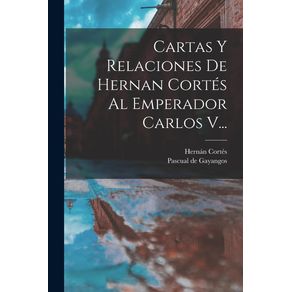 Cartas Y Relaciones De Hernan Cortés Al Emperador Carlos V...
Cartas Y Relaciones De Hernan Cortés Al Emperador Carlos V...
Legare Street Press
R$ 247,45 ou até 3x sem juros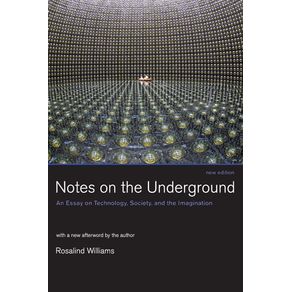 Notes on the Underground, new edition
Notes on the Underground, new edition
Random House
R$ 194,80 ou até 3x sem juros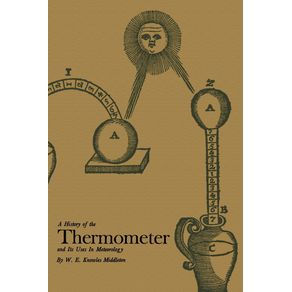 A History of the Thermometer and Its Use in Meteorology
A History of the Thermometer and Its Use in Meteorology
Hopkins Fulfillment Service
R$ 291,13 ou até 3x sem juros Os generais de Hitler
Os generais de Hitler
Companhia das Letras
R$ 149,90 ou até 2x sem juros E alguns filmes que o vento não levou
E alguns filmes que o vento não levou
Editora Viseu
R$ 98,31 à vista Em busca da riqueza
Em busca da riqueza
Editora Viseu
R$ 47,90 à vista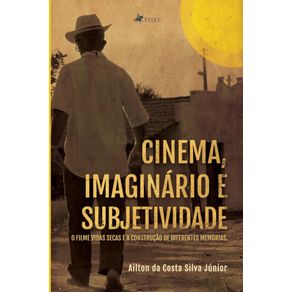 Cinema, imaginário e subjetividade: O filme vidas secas e a construção de diferentes memórias
Cinema, imaginário e subjetividade: O filme vidas secas e a construção de diferentes memórias
Editora Viseu
R$ 51,90 à vista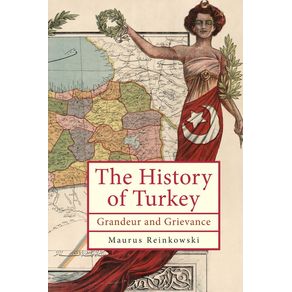 The History of Turkey
The History of Turkey
Academic Studies Press
R$ 177,87 ou até 3x sem juros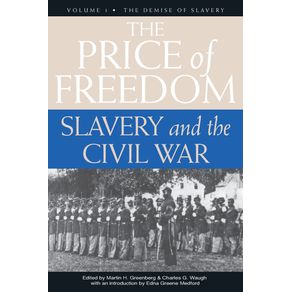 The Price of Freedom
The Price of Freedom
Turner Publishing Company
R$ 163,36 ou até 3x sem juros Discrete Choice Analysis
Discrete Choice Analysis
Random House
R$ 419,64 ou até 3x sem juros Eastern Front - 500 Letters from War
Eastern Front - 500 Letters from War
Draft2Digital
R$ 158,41 ou até 3x sem juros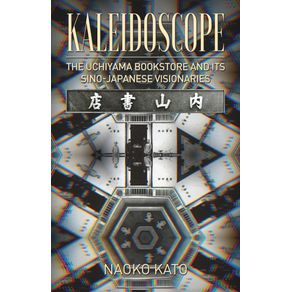 Kaleidoscope
Kaleidoscope
Earnshaw Books Ltd
R$ 159,88 ou até 3x sem juros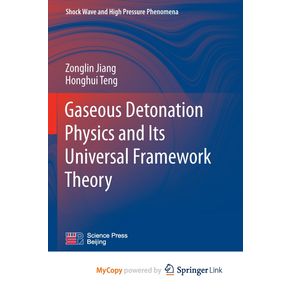 Gaseous Detonation Physics and Its Universal Framework Theory
Gaseous Detonation Physics and Its Universal Framework Theory
Springer Nature B.V.
R$ 350,56 ou até 3x sem juros Puerto Rico y su historia; investigaciones críticas
Puerto Rico y su historia; investigaciones críticas
Legare Street Press
R$ 199,89 ou até 3x sem juros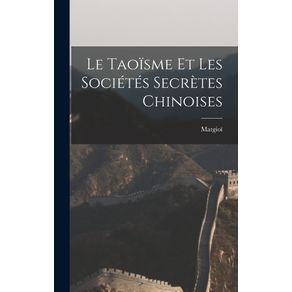 Le Taoïsme Et Les Sociétés Secrètes Chinoises
Le Taoïsme Et Les Sociétés Secrètes Chinoises
Legare Street Press
R$ 176,37 ou até 3x sem juros Cartas Y Relaciones De Hernan Cortés Al Emperador Carlos V...
Cartas Y Relaciones De Hernan Cortés Al Emperador Carlos V...
Legare Street Press
R$ 247,45 ou até 3x sem juros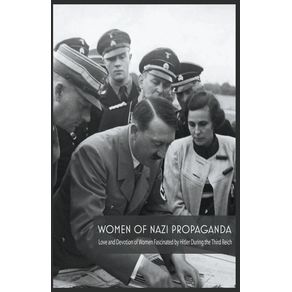 Women Of Nazi Propaganda Love and Devotion of Women Fascinated by Hitler During the Third Reich
Women Of Nazi Propaganda Love and Devotion of Women Fascinated by Hitler During the Third Reich
Draft2Digital
R$ 90,72 à vista Notes on the Underground, new edition
Notes on the Underground, new edition
Random House
R$ 194,80 ou até 3x sem juros E alguns filmes que o vento não levou
E alguns filmes que o vento não levou
Editora Viseu
R$ 98,31 à vista A prosperidade da nação
A prosperidade da nação
Editora Viseu
R$ 36,90 à vista Os 100 casos mais inexplicáveis da história
Os 100 casos mais inexplicáveis da história
Editora Viseu
R$ 48,90 à vista The History of Turkey
The History of Turkey
Academic Studies Press
R$ 177,87 ou até 3x sem juros Scrap Cities
Scrap Cities
Cathy Perlmutter
R$ 154,33 ou até 3x sem juros The Price of Freedom
The Price of Freedom
Turner Publishing Company
R$ 163,36 ou até 3x sem juros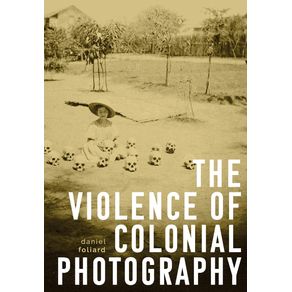 The violence of colonial photography
The violence of colonial photography
Manchester University Press (P648)
R$ 150,79 ou até 3x sem juros Eastern Front - 500 Letters from War
Eastern Front - 500 Letters from War
Draft2Digital
R$ 158,41 ou até 3x sem juros As Saudades Da Terra
As Saudades Da Terra
Legare Street Press
R$ 320,98 ou até 3x sem juros Radiation Therapy for Sarcomas and Skin Cancers
Radiation Therapy for Sarcomas and Skin Cancers
Springer Nature B.V.
R$ 338,74 ou até 3x sem juros Decada quarta da Asia
Decada quarta da Asia
Legare Street Press
R$ 276,39 ou até 3x sem juros Cartas Y Relaciones De Hernan Cortés Al Emperador Carlos V...
Cartas Y Relaciones De Hernan Cortés Al Emperador Carlos V...
Legare Street Press
R$ 247,45 ou até 3x sem juros Pandectae Justinianae In Novum Ordinem Digestae...
Pandectae Justinianae In Novum Ordinem Digestae...
Legare Street Press
R$ 394,98 ou até 3x sem juros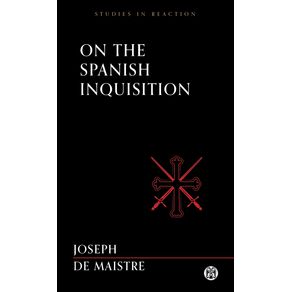 On the Spanish Inquisition - Imperium Press (Studies in Reaction)
On the Spanish Inquisition - Imperium Press (Studies in Reaction)
Imperium Press
R$ 176,77 ou até 3x sem juros A History of the Thermometer and Its Use in Meteorology
A History of the Thermometer and Its Use in Meteorology
Hopkins Fulfillment Service
R$ 291,13 ou até 3x sem juros